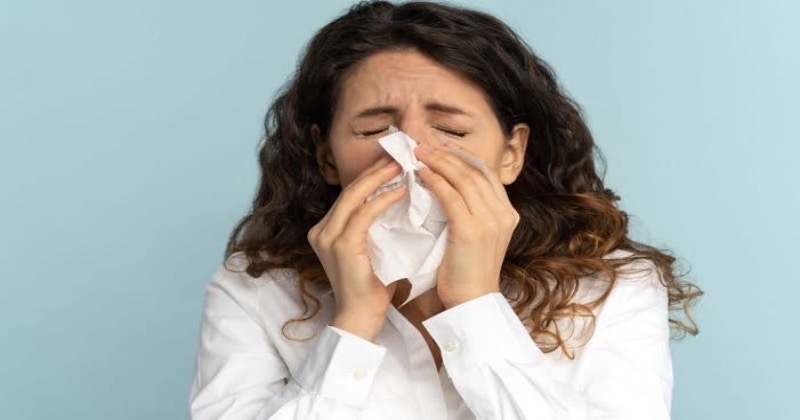
Avoiding allergic sneezing involves minimizing exposure to allergens that trigger your allergies. Here are some tips to help you reduce allergic sneezing:
1. Identify allergens: The first step is to figure out what triggers your sneezing. Common allergens include pollen, pet dander, dust mites, mold spores, and certain foods. Once you know your triggers, you can take steps to avoid them.
2. Keep your home clean: Regularly clean your home to reduce allergens. Dust and vacuum frequently, wash bedding in hot water, and use allergen-proof mattress and pillow covers.
3. Control humidity: Use a dehumidifier to keep indoor humidity levels below 50% to prevent mold growth. Mold is a common allergen that can trigger sneezing.
4. Remove carpets and rugs: Carpets and rugs can trap allergens, so consider removing them from your home or using washable area rugs instead.
5. Keep pets clean: If you’re allergic to pet dander, bathe your pets regularly and try to keep them out of your bedroom and other areas where you spend a lot of time.
6. Close windows: Keep windows closed during high pollen seasons, particularly on windy days, to reduce pollen entering your home.
7. Use air purifiers: Invest in a high-quality air purifier with a HEPA filter to help remove allergens from the air in your home.
8. Avoid smoking: Smoking can worsen allergic reactions, so avoid smoking and exposure to secondhand smoke.
9. Check weather forecasts: Keep an eye on pollen forecasts to know when levels are high, so you can plan outdoor activities accordingly.
10. Wash your hands: Wash your hands frequently, especially after being outdoors, to avoid transferring allergens to your face and nose.
11. Use a mask: If you must be outdoors during high pollen or allergen exposure times, consider wearing a mask to reduce inhalation of allergens.
12. Be cautious with pets and plants: Some plants can trigger allergies, and certain animals may carry pollen or other allergens on their fur. Be mindful of these when choosing plants for your home and interacting with animals.
13. Consider allergy medication: Over-the-counter antihistamines or other allergy medications can provide relief from allergic symptoms, but always consult a healthcare professional before starting any medication.
14. Allergen immunotherapy: If your allergies are severe and significantly affect your quality of life, consider allergen immunotherapy (allergy shots) after consulting with an allergist.

Post Your Comments